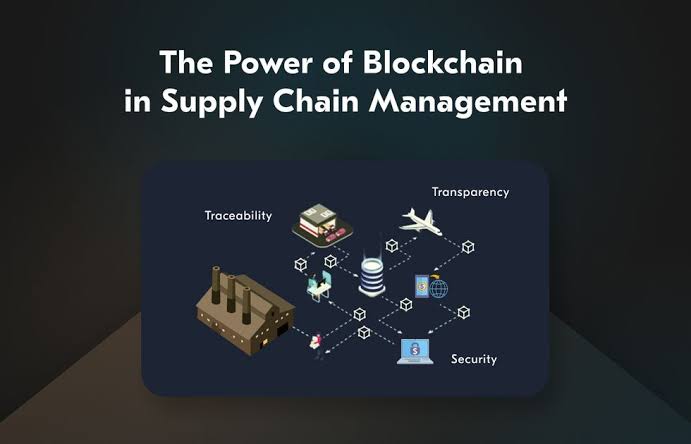The global supply chain has grown increasingly complex over the years, involving multiple stakeholders, cross-border transactions, and vast amounts of data. This complexity has created significant challenges in areas such as transparency, trust, and efficiency. Blockchain technology, originally developed as the foundation for cryptocurrencies, is now being applied to supply chain management to address these challenges.
Blockchain offers a decentralized and tamper-proof ledger system that enables all participants in the supply chain to access a single version of the truth. By recording every transaction in a transparent and immutable way, it ensures that goods and information can be tracked from the point of origin to the end consumer. This makes it an ideal solution for industries seeking to enhance traceability, reduce fraud, and improve operational efficiency.
The adoption of blockchain in supply chain systems has accelerated in recent years, with businesses in sectors such as food, pharmaceuticals, electronics, and logistics leveraging it to create smarter and more accountable networks.
Enhancing Transparency and Traceability
One of the most significant contributions of blockchain to supply chain management is improved transparency. In traditional supply chains, information is often fragmented and stored in separate databases controlled by different entities. This makes it difficult to get a real-time view of product movement and origins.
Blockchain enables all participants to access the same verified data at any time. Every product’s journey, from manufacturing to distribution, can be recorded on the blockchain. This means consumers can verify the authenticity of products, and businesses can ensure compliance with regulations.
In industries like agriculture and food production, traceability is critical for safety and quality control. Blockchain can quickly identify the source of contaminated products, allowing recalls to be targeted and efficient, thus preventing large-scale losses and public health risks.
Strengthening Security and Trust
Security has always been a concern in supply chain systems, particularly when multiple intermediaries are involved. Blockchain addresses this by providing a decentralized, tamper-resistant platform where records cannot be altered without consensus from the network.
This immutability builds trust among supply chain participants, as data manipulation becomes virtually impossible. Digital signatures and cryptographic algorithms ensure that only authorized parties can update or view specific records.
Furthermore, blockchain reduces the need for intermediaries by enabling peer-to-peer transactions. This not only streamlines processes but also minimizes opportunities for fraud and corruption. For businesses, this means a more secure, cost-effective, and trustworthy environment.
Streamlining Processes with Smart Contracts
Smart contracts are self-executing agreements coded on the blockchain that automatically enforce terms when predefined conditions are met. In supply chain management, smart contracts can automate processes such as payments, quality checks, and delivery confirmations.
For example, a supplier could receive payment automatically once goods are confirmed to have reached their destination in good condition. This eliminates the delays associated with manual verification and payment processing.
By reducing paperwork and administrative tasks, smart contracts free up resources and shorten delivery times. They also provide an auditable trail of compliance, which is essential for meeting industry regulations.
Reducing Costs and Inefficiencies
Inefficiencies in supply chains often stem from duplicated efforts, errors in documentation, and miscommunication among stakeholders. Blockchain helps to reduce these inefficiencies by creating a unified platform for sharing information in real time.
This level of coordination minimizes delays caused by missing documents or inconsistent records. Since data is recorded once and shared across the network, there is less need for redundant verification steps.
Cost savings also come from eliminating intermediaries who traditionally act as trust brokers between parties. Blockchain replaces this need with direct, verifiable transactions, reducing transaction fees and administrative overhead.
Combating Counterfeiting and Fraud
Counterfeiting is a major issue in industries such as luxury goods, electronics, and pharmaceuticals. Fake products not only harm brand reputation but also pose serious safety risks to consumers.
Blockchain’s ability to provide a verifiable chain of custody for each product makes it an effective tool against counterfeiting. Each step of a product’s journey can be recorded, and customers can scan a code to verify authenticity.
This system makes it extremely difficult for counterfeit products to enter the supply chain undetected. In the pharmaceutical industry, this is particularly important for ensuring that patients receive genuine and safe medications.
Improving Sustainability and Ethical Sourcing
Consumers and regulators are increasingly demanding proof that products are sourced and produced ethically. Blockchain provides a transparent record of where and how materials were obtained, ensuring that businesses can demonstrate compliance with sustainability goals and ethical practices.
For example, in the fashion industry, blockchain can track whether raw materials were sourced from suppliers who adhere to fair labor standards. In mining, it can verify that minerals are conflict-free and extracted responsibly.
By providing credible data on sourcing practices, blockchain strengthens brand reputation and helps meet growing consumer expectations for corporate responsibility.
Challenges in Implementing Blockchain in Supply Chains
While blockchain offers numerous benefits, its adoption in supply chains is not without challenges. One of the main barriers is the need for industry-wide collaboration. For blockchain to be effective, all stakeholders must be willing to share data on a common platform.
The cost of implementation can also be significant, especially for small and medium-sized enterprises. Building the necessary infrastructure and integrating blockchain with existing systems requires investment in technology and training.
Scalability remains another concern, as blockchain networks must handle large volumes of transactions efficiently. As technology evolves, new solutions are emerging to address these performance limitations, but widespread adoption will take time.
Future Outlook for Blockchain in Supply Chain Management
As blockchain technology matures, its role in supply chain management is expected to expand significantly. Integration with emerging technologies such as the Internet of Things (IoT) and artificial intelligence will create even more powerful solutions for tracking, predicting, and optimizing supply chain operations.
For example, IoT devices can automatically update blockchain records with real-time data on product location, temperature, or handling conditions. Artificial intelligence can analyze this data to predict demand, identify risks, and suggest process improvements.
With increasing pressure for transparency, sustainability, and efficiency, blockchain adoption in supply chains is likely to become a competitive necessity rather than an optional innovation. Companies that embrace this technology early may gain a significant advantage in customer trust and operational performance.




Nice
Interesting